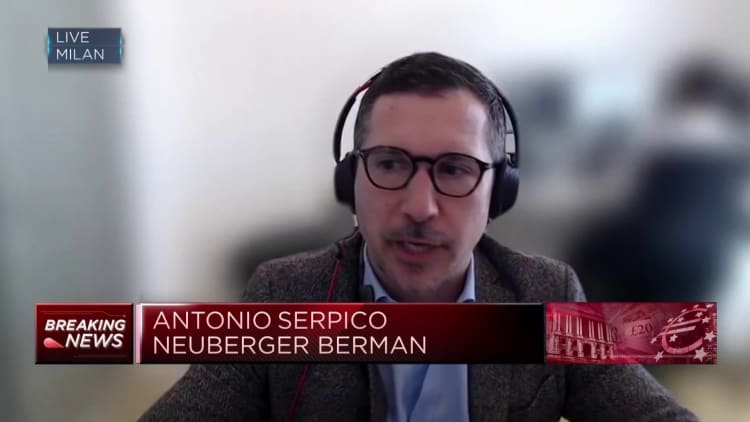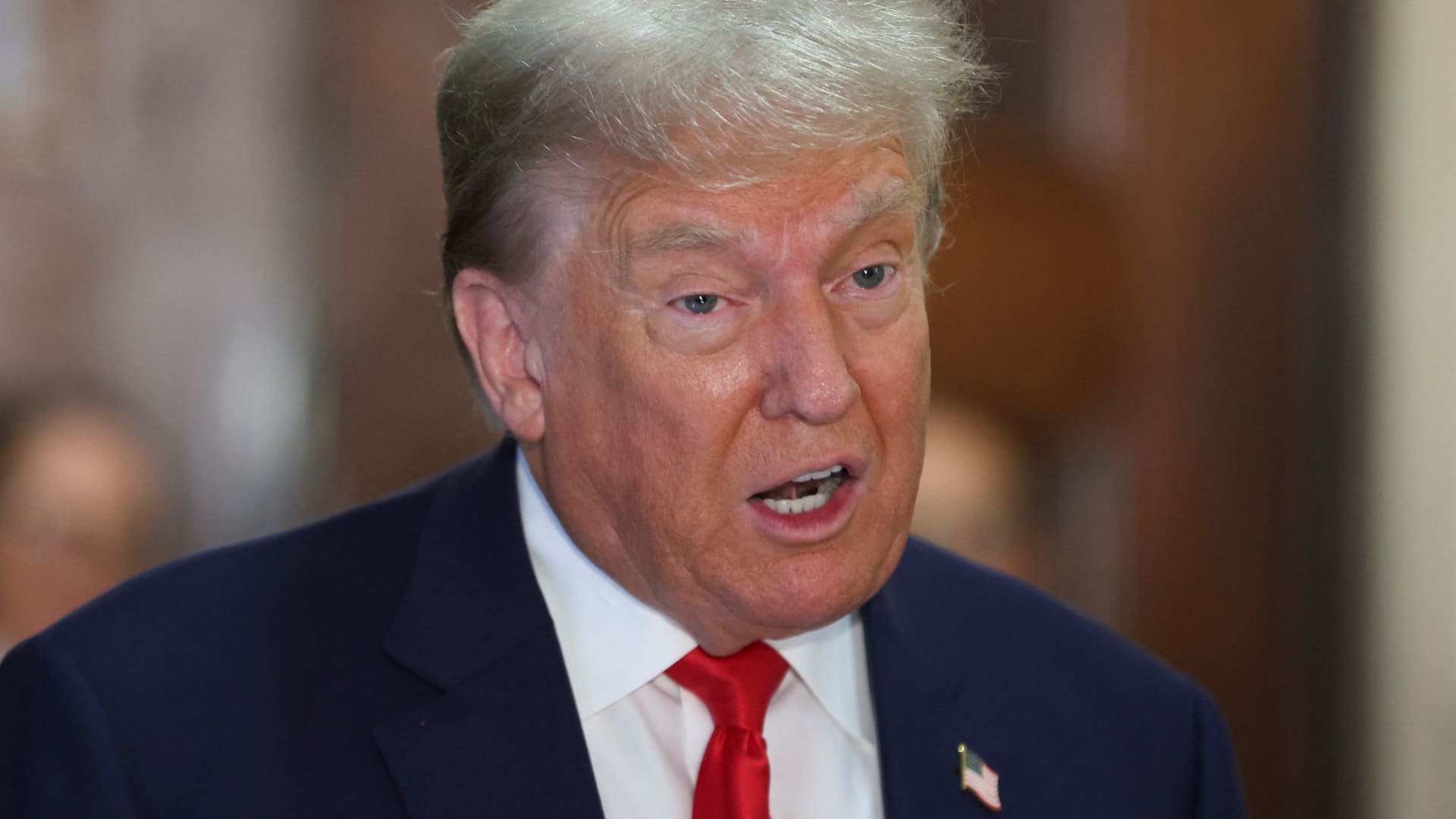The University of Chicago has built a brand around the idea that its students should not be afraid to encounter ideas or opinions with which they disagree.
To support this, the school provides incoming students with copies of its 2015 statement on free expression, known as the “Chicago Declaration,” which states that freedom of expression is an “essential element” of its culture.
And the university has long maintained a policy of institutional neutrality that strongly discourages it from divesting from companies for political reasons or making statements that align it with a social cause. This neutrality, the university argues, enables a robust, unhindered exchange of ideas.
Many professors wallow in pride when they talk about how the school’s commitment to these principles has endured through two world wars, Vietnam and, more recently, the turmoil of the Trump administration. And more than 100 institutions have adopted or endorsed similar principles.
But the University of Chicago’s image as a citadel of free expression is being tested again – this time because of an encampment in the central square that protesters against Israel’s war in Gaza have refused to leave for more than a week.
The university has allowed dozens of tents even though they violate a policy that prohibits the construction of structures in public spaces. The school wanted to offer “the greatest possible scope for freedom of expression,” said university president Paul Alivisatos.
Citing the disruption to student life and the deterioration in civility on campus, the university is now calling for the camp to be disbanded.
So far, negotiations between the two sides have not produced any results. The university said in a statement on Sunday evening that the talks had been suspended.
Student demonstrators say the government’s demand is hypocritical.
“The university constantly argues about this issue of free speech,” said Youssef Hasweh, a fourth-year political science student, during a rally on the Quad on Saturday.
He said the school was telling protesters, “‘We’re giving you your First Amendment rights, and we’re one of the few universities that do that, so we’re the good guys.’
But in his opinion, the Chicago Speech Principles are a fig leaf. “They’re just using this to take us out.”
Across the country, camps have forced administrators and students to confront the outer limits of free expression. The tents, students argue, are a form of speech, but for administrators they violate rules about physical space and disruption on campus.
Should academic institutions ignore their own policies against disruptive activity for the sake of speech, even if many Jewish students feel their identity is under attack? When does a protest dominate a campus so much that it drowns out opposing views? And what if camps overwhelm student life and drumming and chanting interfere with the ability to study for final exams?
Some schools have reached agreements with protesters that lower temperatures, at least temporarily. And the students have dismantled their camps.
But as Chicago leaders look for a way to take down the tents, they may not find many palatable options. Calling the police risks chaos, which no school president wants to see under their watch. And a quad full of tents when families come to graduation isn’t ideal either.
But in some ways the camp dispute is as much about the culture of debate and disagreement as it is about free expression. Students who have grown up and learned about concepts like safe spaces are now accusing universities of silencing them over behavior described as anti-Semitic.
Geoffrey Stone, a law professor at the university, monitored the 2014 Chicago Declaration and said some nuance was lost. While the First Amendment protects people’s right to “say things that scare other people,” Mr. Stone said, “what you want to say to students and citizens is: You should try not to do that.” You should convey your message politely and respectfully communicate.”
Tents, music, disruption
The quad at the University of Chicago was abuzz with protest all weekend. The camp, a mini-village with more than 100 tents, is located just steps from the building that houses the president’s office.
At any given time, the area was teeming with dozens of students, apparently enjoying the unseasonably warm spring weather. Bob Dylan was blaring from the speakers. Chants that many Jews see as a call for the eradication of the state of Israel – “Free, free Palestine” and “From the river to the sea, Palestine will be free” – rang out. Chalked slogans could be read on the sidewalks: “Staying invested is a political statement, not neutrality” and “Chinese queer feminists for Palestine.”
Rev. Jesse Jackson even paid a visit.
However, tensions were evident as some students wore masks or kaffiyehs to cover their faces. Protesters held up blankets to prevent photographers from taking photos. Some Jewish students walked through the courtyard on their way home from the service and passed signs that read “Globalize the Intifada” and “Jews now say ceasefire.”
When student demonstrators first set up the camp on April 29, the university’s president, Dr. Alivisatos, a clear message to the protesters that his leniency is not unlimited.
But the students say they will remain on the Quad until their demands are met, which include a range of issues both related to and touching on the Palestinian cause. These include withdrawing from investments that finance military operations in Israel; whereas genocide and “school murder”, the destruction of Palestinian universities, are taking place in Gaza; disbanding campus police; and stopping the construction of new buildings in the surrounding neighborhood to stop gentrification.
Given Chicago’s policy of neutrality, they don’t seem to be new to the government. It has withstood such pressure before. While other prestigious universities responded to student demands and divested from companies doing business in South Africa in the 1980s, the University of Chicago was a notable exception.
But the university has also been inconsistent, said Mr. Hasweh, the student protester, pointing to its statement of support for those affected by the invasion of Ukraine.
To some protesters, Chicago’s vaunted doctrine of free speech appears to be a dusty relic irrelevant to world affairs, particularly when it comes to the war in Gaza, which for them amounts to genocide.
Language principles are relatable to many students and faculty in the same way that Procter & Gamble’s value statements are relatable to Procter & Gamble’s employees, said Anton Ford, an associate professor of philosophy who was at the camp. “We didn’t vote on it. The students did not vote on it. Nobody asked us our opinion on it.”
Callie Maidhof, who teaches global studies with a focus on the Israeli-Palestinian conflict, advises protesters on negotiations with the government. She said the university was using its neutrality stance “strategically” to address the demonstrations.
“I hear people say, ‘I like free speech, but this is going too far,'” said Dr. Maidhof. “But where is the limit when you talk about 40,000 people killed? What could be considered too far?”
And now: dead end
On Friday, four days after the camp began, the university sent a sobering message to the demonstrators.
“The camp cannot continue,” wrote Dr. Alivisatos in a statement. It led to a “systematic disruption of the campus,” he continued. “Protesters are monopolizing areas of the Main Quad at the expense of other members of our community. Blatant policy violations have only increased.”
He added: “The demonstrators in the camp disregarded our guidelines instead of adhering to them.”
The university has accused student protesters of engaging in activities that contradict Chicago culture – including shouting down counter-protesters and destroying an Israeli flag installation. The student newspaper The Chicago Maroon reported that protesters at one point over the weekend used a projector to project a profane insult to Dr. Alivisatos to show.
The tent village was a sprawling and humbling reminder that even an institution dedicated to fostering a culture of comfortable dissent cannot quell the outrage that has led to raucous demonstrations, building occupations, disruptions to graduation ceremonies and arrests at college campuses across the country has.
“If anyone was going to design a stress test to expose all of the fault lines and unresolved issues in higher education when it comes to student activism, it would be him,” said Jamie Kalven, a journalist who delves into the University of Chicago’s history with free speech and expression has dealt with protest.
Mr. Kalven’s father, Harry Kalven, was chairman of the committee that established the university’s position on political neutrality in 1967. Today’s impasse, the son said, reflects how many students — on Chicago’s ivy-covered campus and beyond — don’t share the school’s values when it comes to political expression.
“It’s truly remarkable the extent to which young people are alienated from what I call the First Amendment tradition,” he said.
And the standoff reflects the extent to which today’s combative political climate has also infected science.
“The default setting is confrontation,” said Eboo Patel, president of Interfaith America, a Chicago-based nonprofit that promotes collaboration among religious communities.
“What was the symbol of the Student Nonviolent Coordinating Committee?” Mr. Patel asked, referring to one of the most active civil rights groups of the 1960s. “It was two hands clasped together.”
And what is the symbol used today by many groups seeking social and political change? Mr Patel replied: “The fist.”
Olivia Gross, a fourth-year student, wishes that young people would learn the ability to work productively with people with different political views and do so more naturally.
“I came here to hear views other than mine,” she said in an interview. “That’s the point of coming to the University of Chicago. I want to know what you think and why you think it.”
But she said the current climate makes that difficult at times.
She noted that the camp’s students had set up tents for various purposes – to greet protesters, for medical purposes and for food.
“How nice would it be,” she mused, “to have a tent that invites dialogue across differences?”
Bob Chiarito contributed reporting.
Source link
2024-05-06 14:47:05
www.nytimes.com















